713. The Twelve Days of Christmas - Lessons from Quotes
PREFACE
There is that old carol which begins "On the first day of Christmas, my true love gave to me," which presupposes a true love, which I haven't. Still, I am offering below, one Christmas Day at a time - for the next twelve of the calendar - a short quote which has advised me, either in recent times or in the long distant past, or perhaps from the "dark vast and middle of the night."
A LESSON FOR THE FIRST DAY OF CHRISTMAS, which is today, December 25th
Today's quote is from Abraham Cowley, a 17th century poet from the City of London. It applies specifically to, first, the events of a party held at my friend Aaron Jent's a few nights ago. And twice now of the same person, the first being an Election Night party in 2010, I've felt some betrayal - which is far too strong of a word yet I can think of no other - by certain actions. Here is the quote --
A mighty pain to love it is,
And 'tis a pain that pain to miss;
But of all pains, the greatest pain
It is to love, but love in vain. (1656)
An other lesson from a quote will follow tomorrow.
A LESSON FOR THE SECOND DAY OF CHRISTMAS, which is December 26th
Today's entry comes to us from Stanley Kunitz, an American poet who died in 2006 at the age of 100. He twice served as the Poet Laureate of the United States, most recently from 2000-2001. He was a conscientious objector in the Second World War although he did serve in the military. Such status may offer insight to a line in his work called Foreign Service, which serves as today's entry.
Doomsday is the eighth day of the week. (1958)
I have not read the context in which the line is written, but it does work for me. There is no eighth day of the week. I am an optimist and have always been, although I am often a quiet optimist. For me optimism doesn't mean that things will always turn out well. It does mean that our lives have purpose and every event in them can be used for learning. Some of those events are not pleasant and others are as endearing as possible. Optimism lies in the idea that tomorrow there is more of life to be lived, and I think that a good thing.
An other lesson from a quote will follow tomorrow.
A LESSON FOR THE THIRD DAY OF CHRISTMAS, which is today, December 27th
Know your station.
Sounds a little elitist, I know. It can be, but it isn't meant to be. During the 1990s and the first few years of the 21st century's single digits years, I worked in the private sector for attorneys. One of those was Norma Miller. She was a school teacher-turned-lawyer who at one time taught at my alma mater, Durrett, as Norma Osborne. She offered this advice with good intentions. Know who you are, where you stand, and what you can and cannot get away with. She didn't mean to limit yourself forever to a station in life in which you are unhappy. Just understand there are processes which can move you up and down the ladder and one part of a trip in either direction is to understand your present starting point. Having been around some of both Louisville's wealthiest and poorest of people, and counting friends in both spheres, I've appreciated this advice. Unfortunately, I haven't always followed it.
An other lesson from a quote will follow tomorrow.
A LESSON FOR THE FOURTH DAY OF CHRISTMAS, which is today, December 28th
For many of us, the image we have of Four-Star General George Smith Patton is that portrayed in the movie starring George C. Scott. I prefer to remember Scott in Dr. Strangelove, but that is a different story for a different day. Today's quote is from the general to his son, George Smith Patton IV, who was a cadet in the Army on June 6, 1944, a well-known day in American history. Among the advice given is the letter is the following:
"Take calculated risks. That is quite different from being rash."
This is another piece of advice I wished I had began following earlier in life. Calculated risks means just that - you've made a calculation as to the outcome of whatever, and assessed the risks of both success and failure and are prepared to live with either outcome. Being rash involves no calculations, nor any plans for either outcome. There is a reason Patton rose to his four-stardom. He assessed risk and executed. It is great advice.
An other lesson from a quote will follow tomorrow.
A LESSON FOR THE FIFTH DAY OF CHRISTMAS, which is December 29th
In my Facebook profile you will find a quote of mine which reads "Remember your yesterdays, Celebrate your todays, Pray for your tomorrows." That quote is in the running to end this litany of "quotes to live by" and may show up again on the 5th of January. Today's, however, is a corollary of sorts taken from the Bard - I'm surprised it took me this long to get to Shakespeare. From his play King Henry the Sixth Part II, in Act IV, we find
"I will make it felony to drink small beer."
I'll be honest - I do not know the context in which the words are spoken. However, it must have been a common expression as it appears in at least two other of Shakespeare's plays, Othello and King Henry the Fourth Part II. I take it as an encouragement to celebrate life, something many of us at times fail to do. We know that we are appointed a certain number of days to live and to each of us once to die. The problem is we don't know when any of them are. Therefore, rejoice and be glad. Celebrate and enjoy. And while one should do all things in moderation, or so the saying goes, do not have "small beers." If your way of celebrating is drinking Diet Cream Soda, do so with gusto. If, like me, you like a glass of Merlot on the days which end in "Y" make sure you smell the bouquet and drink to the end. Some of you may be partakers of Kentucky's most infamous product, hemp, in its smoking form. Far be it from me to judge you for that either. The Gospel of Matthew, in fact, at Chapter 7, tells me not to. The point is this - we are all one in the eyes of our Creator. He did not mean for us to be gloomy or sad or mean or morose. "Don't drink small beer" is what he meant, I think.
An other lesson from a quote will follow tomorrow.
INTERIM OBSERVATION - I stated yesterday that I was "surprised it took me [to the Fifth Day of Christmas] to get to Shakespeare." Well, it didn't. The closing phrase of the Preface to this entry, written back on Christmas Day, is from, perhaps, the most well-known play in the world, a work of the Bard of Stratford.
A LESSON FOR THE SIXTH DAY OF CHRISTMAS, which is December 30th
Today's "quote to live by" is from a Louisville native, Louis Dembitz Brandeis, nominated by President Woodrow Wilson as Associate Justice of the United States Supreme Court on January 29, 1916 and confirmed by a strongly divided United States Senate on June 1st of the same year. Brandeis is one of the leading lights of American jurisprudence and liberalism. His face is familiar to eastbound Liberty Street drivers as one of the large murals adorning Louisville's buildings. And for those readers who wandered in and out of the Louis D. Brandeis School of Law at the University of Louisville, a small cemetery greets you at the entrance under the portico where the remains of Justice Brandeis and his wife are interred. The words and works of Justice Brandeis are many. For me, the following is an underpinning of my belief in government and liberalism.
"What are the American ideals? They are the development of the individual for his own and the common good; the development of the individual through liberty, and the attainment of the common good through democracy and social justice." (1915, True Americanism)
My seven faithful readers will recall that I have often railed against the individualism which has controlled this Republic for the last thirty years, "rugged individualism" fostered by a president who lead the country deep into debt and did very little to correct the problem he created - Ronald Reagan, one of America's worst presidents as far as the common good is concerned. And it is in this last instance where Brandeis guides us. The American ideal is both the successes of the individual and the common good. While Brandeis lists only one avenue for the success of the individual - liberty, he offers two for common good - democracy, and as a back-up, social justice. I have been in an ongoing conversation With a dear friend who has become enamored of liberty and individualism. And while I have often been frustrated by his beliefs, it isn't because liberty and individualism are bad. But they are if they stand alone. Standing alone they will lead to the fall of the Republic. We are well on the way. Restoration of the "good old days" will require restoration of both a belief in and support of the strong central government, one strong enough to provide for the common good of all 308,000,000 people who call themselves Americans, as well as one strong enough and willing to create and sustain social justice. That is my America and I believe it was the ideal America of which Justice Brandeis wrote.
An other lesson from a quote will follow tomorrow.
A LESSON FOR THE SEVENTH DAY OF CHRISTMAS, which is December 31st
John Greenleaf Whittier was a 19th century American poet, politician, and newspaper writer. O that we would have such people today. (As an aside, Louisville had a newspaper writer-turned-politician in Henry Watterson. I do not know if he was into poetry). Whittier was a native of Massachusetts and failed in his only run for Congress, which we are told led to a nervous breakdown. He also founded a political party called Liberty (of all things). One must wonder what this man of peace and ardent abolitionist wished to do had he been elected to the Congress. Today's quote leaves much to the imagination.
"For all sad words of tongue or pen, The saddest are these: 'It might have been.'" (1856, Maud Muller)
Most questions in life, ultimately, have only one answer from a choice of two, either Yes or No. Certainly there are shades of grey here and there, but from the ridiculous to the sublime, most answers end up being some form of either Yes or No. Yet, some questions go unanswered because they go unasked. We've all heard presenters make the statement, "there are no stupid questions" to which some will add, "only those not asked." Whether the topic be politics or religion or love, things either are or aren't, answers are either yes or no. The sole exception to this is mathematics, where it is my belief there is always only one answer, the correct one. Mathematicians leave much to be desired when it comes to imagination. I prefer those who, while fearing the answer, do go ahead and ask. I have tried to follow this maxim, often knowing the answer, especially when it wasn't the answer I wanted to hear. The lesson here is fear not to ask, and fear even less the answer. For some answer is better than none at all. A corollary for New Year's Eve, as I find myself single in the largest sense of the word, is "'Tis better to have loved and lost than never to have loved at all." This, from Tennyson.
Happy New Year's Eve, one and all.
An other lesson from a quote will follow tomorrow.
A LESSON FOR THE EIGHTH DAY OF CHRISTMAS, which is January 1st
Today is New Year's Day, usually celebrated the night before with revelry and fun. I was among those reveling in fun well into the night. But we all have holidays all the time, and we are prone to celebrate them in our own private ways, based on a song or a scene, or a cold snowy day or a splash in the cooling waters of North Benson Creek on a hot summer day in our youth. I have all of these. Listening to Jackson Browne's Running on Empty immediately places me, sometime in the early 1980s, in Mary-John Celletti's old brown Mercedes she called Winston along the Old Frankfort Pike in Woodford County. Watching the Kentucky Derby on TV evokes memories of when I attended in person with regularity, along with my grandfather Dan Hockensmith, my uncle Noble Hedger, and another so-called uncle, Harmon Moore. I recall the deep snows of January 1994 and driving to work where my friend Evan and I played Jeopardy on the earliest of computer-based games. North Benson Creek, especially along the Devil's Hollow Road in far western Franklin County, has been a cooling refuge for generations of my mother's family - both sides - and I often swam there in my teenage years when I was chasing after a girl named Ann Rochelle "Shelly" Dean. Such thoughts bring me to today's quote, to wit -
"The holiest of all holidays are those kept by ourselves in silence and apart; The secret anniversaries of the heart." (c. 1879)
These words were penned by another of America's 19th century poets, Henry Wadsworth Longfellow, a native of the "Maine district" of Massachusetts, Harvard lecturer, and historical lyricist. He was born in 1807 and died in 1882. Many of us learned to recite a part of one of his most famous poems as part of our American Revolutionary History course, the lines from Paul Revere's Ride. "Listen, my children, and you shall hear, of the midnight ride of Paul Revere, on the Eighteenth of April, in Seventy-Five, hardly a man is now alive, who remembers that famous day and year." We all have those "famous days and years" which we will always cherish in our heart, our own collection of these holiest of holidays.
An other lesson from a quote will follow tomorrow.
A LESSON FOR THE NINTH DAY OF CHRISTMAS, which is January 2nd
One of my seven faithful readers happens to be one of the biggest fans of The Beatles this side of Liverpool. Olivia Fuchs, who is otherwise an attorney, makes endless You-Tube posts, newsletters called the Bea-letter (or something), and other event-related comments about the Fab Four, especially as the Abbey Road on the River, conventiently abbreviated as AROTR in most of the posts, makes its way to Louisville late each Spring. Olivia, however, knows that while I share a great love for music in general, the Fab Four aren't among my favorites. That isn't to say I do not like their music. There are a few songs in particular I love - I Wanna Hold Your Hand and Twist And Shout come to mind immediately. Today's quote is from a different Beatles' song, one written by Paul McCartney with input from the late John Lennon. The song was written and recorded in March 1967 and released on June 1st of that year. The song is my story as it relates to the last few weeks. The quote below was the working title and it appeared on the Sgt. Peppers Lonely Heart Club album.
"I get by with a little help from my friends." (1967)
Followers of my Facebook page may recall a status update of mine posted back around Thanksgiving. It expressed my concern, for myself and others of my ilk, who find the holidays - now thankfully past - difficult at best and extraoridnarily lonely at times. Yet, we manage to make it through the seven weeks or so from Thanksgiving to yesterday, New Year's Day. And, again for folks of my ilk, we could not do so without (more than) a little help from our friends. Late in the night, actually about 3:15 am on New Year's Day, one of those friends called me. It was a call I was hoping for, worried about getting and not getting, and most pleased to have received. The caller, Michael, reminded me of our friendship, the other friends I have, and the support they have all given me, some in large and known ways, others in the quiet corners of the season. Each year I do dread the holiday season. Thankfully, I get by with a little help from my friends. Thanks to all of you. Happy New Year.
(This entry will be amended and re-posted as the first official entry for 2012)
An other lesson from a quote will follow tomorrow.
A LESSON FOR THE TENTH DAY OF CHRISTMAS, which is January 3rd
Will Rogers, a beloved American actor, writer, and satirist, offers up today's quote - not necessarily "one to live by" on a regular basis, just one to ponder on the first day of Election 2012. There is probably a lot of truth in it. Briefly, first, about Rogers, he was born in 1879 in what was called at the time "Indian Territory." We now call it Oklahoma. He died in an airplane crash 55 years later in another soon-to-be-an-American-state, the "Alaska Territory." Of his Native American heritage, he once remarked, "My forefathers didn't come over on the Mayflower, but they met the boat at the shore." Here is today's quote:
"More men have been elected between sundown and sunup than were ever elected between sunup and sundown." (1924, The Illiterate Digest)
I find the quote appropriate tonight, even for a slight smile. At 7:00 pm CST, 8:00 pm here along the Left Bank of the Ohio River near Milepost 606, and thus after sundown tonight and before sunup tomorrow, voters in the midwestern state of Iowa began their infamous quadrennial caucus where just a few minutes ago, it appeared to be a three-way tie between Congressman Paul, Governor Romney, and the latecomer, Rick Santorum. Santorum has never impressed me. Paul once held my fancy, but that was many years ago and until he disavows the racist and homophobic statements made in his name, I have no plans to ever support him again. I have spoken to one of his more ardent supporters, Preston Bates, on this matter and Preston agrees with me that Paul should say these were not his thoughts, words, or beliefs. Preston is, as we speak (and assuming he has told me the truth) working for the Paul campaign in New Hampshire, where voters will next week take to the polls in the latest installment of the long and winding road which will probably lead to the nomination of Governor Romney as the GOP standard-bearer. We'll see - the show goes on. Happy Election Year, 2012.
(This entry will be re-posted as an entry of its own).
An other lesson from a quote will follow tomorrow.
A LESSON FOR THE ELEVENTH DAY OF CHRISTMAS, which is today, January 4th
Gatewood Galbraith, who passed away today at the age of 64, was known to be something of a "happy warrior." Serious about his political platform, he was, as far as everyone seems to say, a very happy person to be amongst. Today's quote to live by, more for the Republic than any single one of us, comes from a man who was known in national politics as "The Happy Warrior," Hubert Humphrey, who is one of my personal political heroes. Humphrey lived from 1911 to 1978 and served as Vice President of the United States under LBJ, another personal political hero. Both before and after his term as Vice President, Humphrey represented Minnesota in the United States Senate. As we enter the 2012 election season, let's not forget these words, undated, offered by Humphrey -
"Compassion is not weakness, and concern for the unfortunate is not socialism."
All too often in the national discussion compassion is looked upon as weak and silly. It is a result of that "rugged individualism" that President Reagan, one of America's worst presidents as far as the core fibers of our democracy are concerned, taught us to be a good thing. It isn't. We are Americans first and individuals second. Our sovereignty is granted through our citizenship as Americans. Humphrey understood this. Socialism is basically a four-letter word in the lexicon of American politics. Yet, we have been practicing forms of it throughout the history of the Republic, all the way back to the Revolution when one famous American is said to have commented "we must all hang together or we may all hang separately." Socialism has moved into the way we help young people in college, help lead adults into home ownership, and provide medical needs to our elders. And while there is no doubt that corruption has bred itself into the system, and needs to be systematically removed, our way of life - our uniquely American way of life - has benefitted from the veins of socialism which course through our government. Most of the Republican candidates for president are working hard to bring to an end our American way of life. Humphrey would have fought those efforts, but also would have done so smiling all the way.
(This entry will be re-posted as an entry of its own).
An other lesson from a quote will follow tomorrow.
A LESSON FOR THE TWELFTH DAY OF CHRISTMAS, which is today, January 5th
As many of you know, I like to drive - a lot. In these trips, labelled in 2006 by the then-Yarmuth for Congress Campaign Manager Jason Burke as "nobling" it often appears that the drives are aimless wandering. I know my "greener" friends will not appreciate the idea that I like to drive aimlessly here and there. The truth is it usually isn't aimless at all. I often have a desitnation in mind, whether it be Frankfort or Perryville or Madison (IN) or Corydon (IN) or Maysville, as was the case a few weeks ago, or even Washington DC or Brooklyn NY. The wandering part comes in the route getting from Point A, somewhere near the Left Bank of the Ohio River near Milepost 606, to Point B, wherever the destination might be. There is an entry on the blog called the Twelve Roads to Frankfort (or something like that). It could have just as easily been titled the Twelve Roads to Bardstown or Owensboro or wherever. Owensboro, technically, is not the easiest place to get to unless you are in Henderson or Evansville, just for the record.
In any event, I've known all along what the Lesson for the Twelfth Day of Christmas would be. It is a poem I've written about before on the blog, James Whitcomb Riley's My Philosofy. I learned it as an eight year old at the direction of my late great-uncle, Bob Lewis, Jr. I recite it all the time, to myself, and often to friends. I recently recited it at the 30th birthday party of Elizabeth Sawyer, a successor to Jason Burke as manager of the Yarmuth campaign. At the time I was with Kathy Wright, a Democratic Party activist from southeastern Jefferson County. It is my favorite poem.
Earlier today on Facebook, I rhetorically asked "who would provide the Twelfth Lesson?" I got feedback from several people including my friend Thomas A. "Tony" McAdam, who offered a 1925 quote from Lord Arthur James Balfour, "Nothing matters very much, and few things matter at all." I am familiar with that quote and really like it. I reduced that to the words from Bobby McFerrin's a capella song from September 1988 - "Don't Worry, Be Happy." McFerrin borrowed the line from an Indian guru/mystic, Meher Baba, who used it as part of his teaching in the mid 20th century. Interestingly, McFerrin's song and Tony's suggestion from Lord Balfour aren't far from the snetiments expressed in the poem which I knew would be the final lesson. Of course the poem is a much longer version, but it is one I have always known and somewhat followed.
I am understood by many to have a philosophy - I'm fairly liberal, fiercely partisan, and have sometimes been called a socialist, probably deservedly. I was so earlier tonight, in fact. But I have tried with great earnest throughout my life not to hold another's religion or creed or personal mantra or family status or any other distinction from having and keeping friends who are different than me. I believe I have been successful as most of my friends do share differences of opinions, beliefs, lifestyles, social strata, and many other measures of differentiation. I've never, or cpehaps rarely minded. I am more of a process person than policy person. Sure, I support policy but I especially support policy if it is attained through the proper processes. I've been criticised for that over the years, most recently by Curt Morrison, but I haven't changed much in response to that criticism.
James Whitcomb Riley's poem has been a guiding light since the age of eight, which at 51 now was a long, long time ago. Here is the poem with its original rural gothic spelling -
MY PHILOSOFY
BY JAMES WHITCOMB RILEY
I ain't, ner don't p'tend to be,
Much posted on philosofy;
But thare is times, when all alone,
I work out idees of my own.
And of these same thare is a few
I'd like to jest refer to you--
Pervidin' that you don't object
To listen clos't and rickollect.
I allus argy that a man
Who does about the best he can
Is plenty good enugh to suit
This lower mundane institute--
No matter ef his daily walk
Is subject fer his neghbor's talk,
And critic-minds of ev'ry whim
Jest all git up and go fer him!
I knowed a feller onc't that had
The yeller-janders mighty bad,--
And each and ev'ry friend he'd meet
Would stop and give him some receet
Fer cuorin' of 'em. But he'd say
He kindo' thought they'd go away
Without no medicin', and boast
That he'd git well without one doste.
He kep' a-yellerin' on--and they
Perdictin' that he'd die some day
Before he knowed it! Tuck his bed,
The feller did, and lost his head,
And wundered in his mind a spell--
Then rallied, and, at last, got well;
But ev'ry friend that said he'd die
Went back on him eternally!
Its natchurl enugh, I guess,
When some gits more and some gits less,
Fer them-uns on the slimmest side
To claim it ain't a fare divide;
And I've knowed some to lay and wait,
And git up soon, and set up late,
To ketch some feller they could hate
Fer goin' at a faster gait.
The signs is bad when folks commence
A-findin' fault with Providence,
And balkin' 'cause the earth don't shake
At ev'ry prancin' step they take.
No man is grate tel he can see
How less than little he would be
Ef stripped to self, and stark and bare
He hung his sign out anywhare.
My doctern is to lay aside
Contensions, and be satisfied:
Jest do your best, and praise er blame
That follers that, counts jest the same.
I've allus noticed grate success
Is mixed with troubles, more er less,
And it's the man who does the best
That gits more kicks than all the rest.
*****
Merry Christmas on the Twelfth Night. Tomorrow is Epiphany. Thanks Be To God.


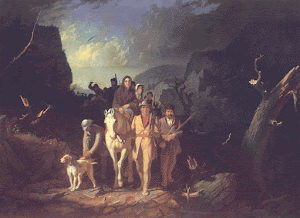












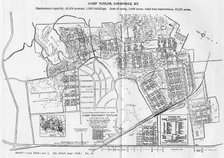


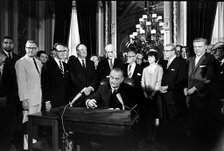

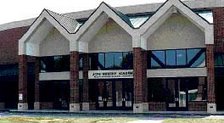


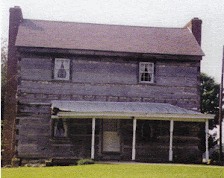
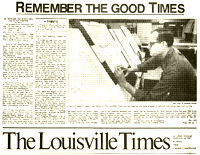
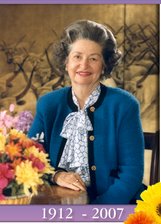

No comments:
Post a Comment